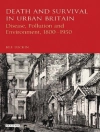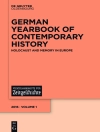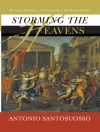This book
aims to intervene in current critical contexts for the study of nineteenth-century literature within the academy and beyond. Topics discussed include science and technology, poetry and philosophy, the Gothic, anatomical exhibitions, the global spread of liberalism, Anglo-American publishing, Punjabi popular culture and the neo-Victorian in literature, film and performance. By bringing together a broad range of intellectually challenging perspectives, the book offers an engaging critical overview of the field of nineteenth-century literary studies that will appeal both to scholars working within the field and students and teachers encountering this fascinating area of study for the first time.
قائمة المحتويات
Introduction – Andrew Smith and Anna Barton
Part I: Critical reflections
1 On measuring the nineteenth century – John Schad
2 Literature and science – David Amigoni
3 Locke in pentameters: Victorian poetry after (or before) posthumousness – Anna Barton
4 Reading the Gothic and Gothic readers – Andrew Smith
Part II: Rethinking national contexts and exchanges
5 The global circulation of Victorian actants and ideas: liberalism and liberalisation in the niche of nature, culture, and technology – Regenia Gagnier
6 Literary folk: writing popular culture in colonial Punjab, 1885-1905 – Churnjeet Mahn
7 ‘Across the waters of this disputed ocean’: the material production of American literature in nineteenth-century Britain – Katie Mc Gettigan
8 Gruesome models: European displays of natural history and anatomy and nineteenth-century literature – Laurence Talairach-Vielmas
Part III: Afterlives
9 Adaptive/appropriate reuse in neo-Victorian fiction: having one’s cake and eating it too – Marie-Luise Kohlke
10 Populism and ideology: nineteenth-century fiction and the cinema – Richard J. Hand
11 True histories of the Elephant Man: storytelling and theatricality in adaptations of the life of Joseph Merrick – Benjamin Poore
Index
عن المؤلف
Andrew Smith is Professor of English Studies at the University of Glamorgan where he is Co-Director of the Research Centre for Literature, Arts and Science (RCLAS)












